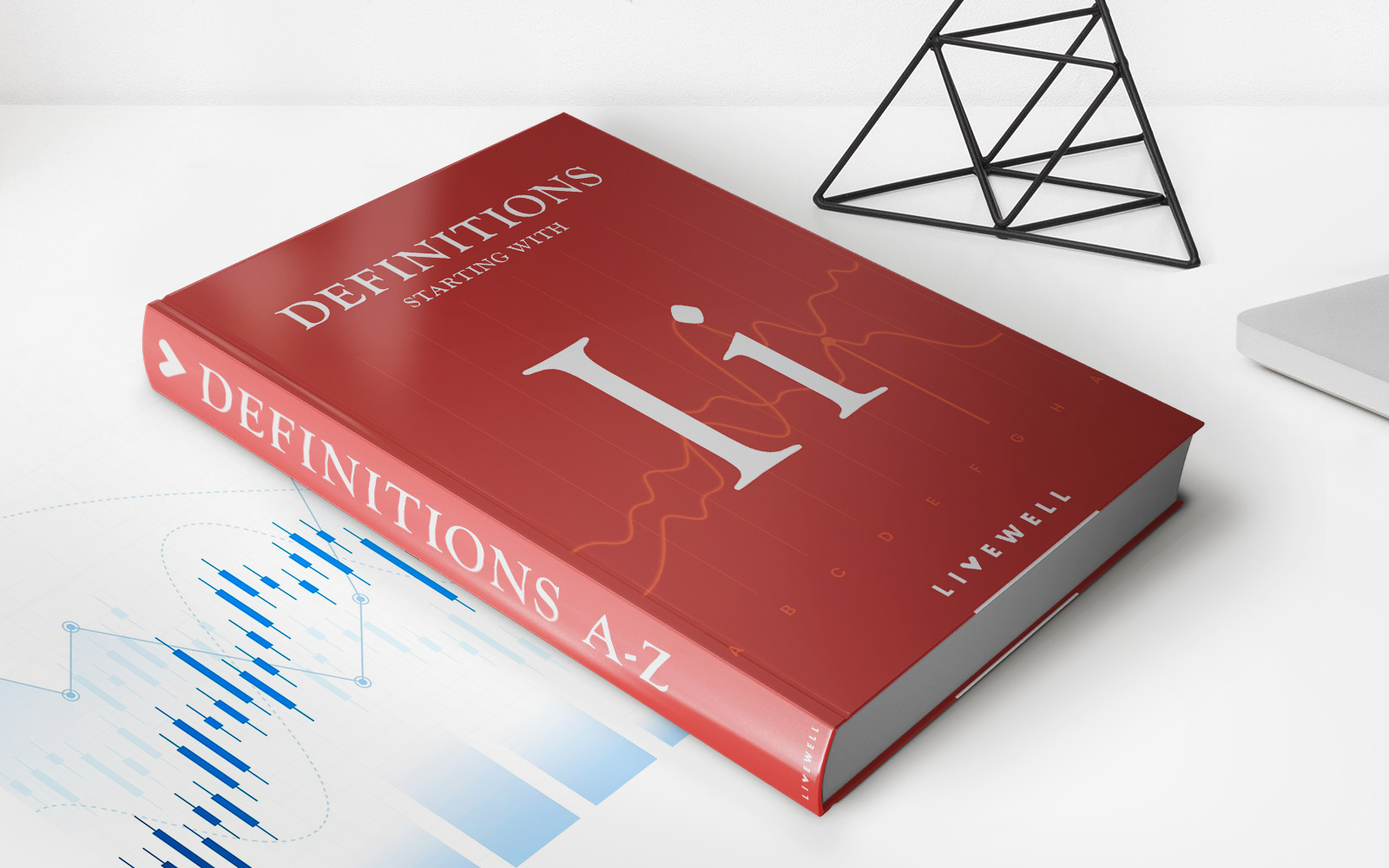

Finance
How To Get Rich Off Life Insurance
Modified: February 21, 2024
Discover the secret to building wealth through life insurance with our comprehensive guide. Learn how to leverage finance strategies for a brighter financial future.
(Many of the links in this article redirect to a specific reviewed product. Your purchase of these products through affiliate links helps to generate commission for LiveWell, at no extra cost. Learn more)
Table of Contents
- Introduction
- Understanding Life Insurance
- Choosing the Right Life Insurance Policy
- Beneficiary Designation and Coverage Amount
- Determining the Premiums
- Maximizing Cash Value Accumulation
- Making the Most of Death Benefits
- Tax Advantages of Life Insurance
- Leveraging Life Insurance for Wealth Creation
- Estate Planning with Life Insurance
- Conclusion
Introduction
Life insurance is often seen as a protective measure, providing financial security for your loved ones in the event of your passing. However, did you know that life insurance can also be a powerful tool for wealth creation? Many people overlook the potential financial benefits that come with a well-structured life insurance policy.
In this article, we will explore how you can get rich off life insurance. We’ll discuss the different types of life insurance policies available, how to choose the right policy, and how to maximize the benefits of life insurance for wealth creation.
While life insurance primarily serves as a safety net, it can also be used strategically to build and grow your wealth over time. By understanding the features and options available, you can leverage life insurance to create a financial legacy for yourself and your loved ones.
Before we dive into the details, it is important to understand the basics of life insurance. Life insurance is a contract between an individual and an insurance company. The individual pays regular premiums to the insurance company, and in return, the company provides a death benefit to the designated beneficiaries upon the insured’s death.
Life insurance policies can vary in terms of coverage, premium amount, and duration. The two main types of life insurance are term life insurance and permanent life insurance. Term life insurance provides coverage for a specific period, typically 10, 20, or 30 years, while permanent life insurance offers coverage for the entire lifetime of the insured.
Now that we have a foundation of understanding, let’s delve into the specifics of how you can utilize life insurance to build wealth and potentially get rich.
Understanding Life Insurance
Before we discuss how to get rich off life insurance, it is essential to have a solid understanding of how life insurance works. By grasping the key concepts and terminology, you can make informed decisions when choosing a policy and optimizing its benefits.
Life insurance is a contract between the policyholder and an insurance company. The policyholder pays regular premiums to the insurance company, and in exchange, the company provides a death benefit to the designated beneficiaries upon the policyholder’s death.
Term life insurance and permanent life insurance are the two main types of life insurance policies. Term life insurance offers coverage for a specific term, typically ranging from 10 to 30 years. It is an affordable option, providing a death benefit if the policyholder passes away during the term.
Permanent life insurance, on the other hand, provides coverage for the entire lifetime of the policyholder. It includes a death benefit along with a savings component called the cash value. The cash value accumulates over time and can be accessed by the policyholder through withdrawals or policy loans.
Understanding the nuances of these life insurance types is crucial for determining which policy best suits your needs and goals. Term life insurance is often chosen for temporary coverage needs, such as paying off a mortgage or providing income replacement until retirement. On the other hand, permanent life insurance offers lifelong protection and can serve as a financial tool for wealth creation.
Additionally, it is important to know that the cost of life insurance is primarily determined by factors such as age, health, and the coverage amount. The younger and healthier you are, the lower the premiums will likely be. It’s crucial to consider these factors when choosing a policy and determining the coverage amount that adequately protects your loved ones.
Life insurance policies also typically require you to designate beneficiaries – individuals or entities who will receive the death benefit upon your passing. It is important to regularly review and update your beneficiary designations to ensure they align with your current wishes.
Now that you have a better understanding of life insurance basics, let’s move on to selecting the right policy to enhance your wealth-building potential.
Choosing the Right Life Insurance Policy
When it comes to getting rich off life insurance, selecting the right policy is crucial. The policy you choose will determine the potential for wealth accumulation and the level of financial protection provided. Here are some key factors to consider when choosing the right life insurance policy:
- Financial Goals: Determine your financial goals and aspirations. Are you looking to build cash value over time, provide a financial safety net for your dependents, or both? Understanding your objectives will help you choose a policy that aligns with your long-term financial plans.
- Term vs. Permanent: Consider whether you need temporary coverage or lifetime protection. Term life insurance is more affordable but offers coverage only for a specific period. Permanent life insurance, on the other hand, provides lifelong coverage along with a cash value component.
- Level of Coverage: Evaluate the amount of coverage you need to adequately protect your loved ones. Take into account factors such as outstanding debts, mortgage payments, income replacement, future education expenses, and funeral costs.
- Health and Lifestyle: Your health and lifestyle can impact the availability and cost of life insurance policies. Insurance companies consider factors such as your age, medical history, tobacco use, and hobbies when determining premiums. It’s essential to provide accurate information to ensure you receive the appropriate coverage and affordable rates.
- Additional Features: Explore the additional features and riders available with life insurance policies. Some policies offer options for accelerated death benefits, which allow you to access a portion of the death benefit while you are still alive if you become terminally ill. Other riders can provide added protection, such as coverage for critical illness or disability.
- Financial Stability of the Insurer: Research and choose an insurance company with a strong financial rating. Consider their reputation, customer service, and ability to meet their financial obligations in the long run.
It’s important to carefully evaluate your needs and review policy options from multiple insurance providers. Consulting with a financial advisor or insurance agent can also provide valuable insights and guidance in choosing the right life insurance policy for your specific situation.
Remember, the right life insurance policy will provide the necessary coverage while also offering the potential for wealth accumulation through the cash value component. By choosing wisely, you can set yourself on the path to financial success with life insurance.
Beneficiary Designation and Coverage Amount
When it comes to life insurance, two essential considerations are beneficiary designation and coverage amount. These factors directly impact the financial well-being of your loved ones in the event of your passing. Let’s explore their significance and how to make informed decisions:
Beneficiary Designation: The beneficiaries of your life insurance policy are the individuals or entities who will receive the death benefit when you pass away. It’s important to carefully consider and designate your beneficiaries to ensure your wishes are fulfilled. You can choose a primary beneficiary, who will receive the full death benefit, and contingent beneficiaries, who will receive it if the primary beneficiary predeceases you.
When designating beneficiaries, think about your relationships and financial obligations. Common choices include spouses, children, other family members, or even charitable organizations. You can also specify the percentage of the death benefit each beneficiary will receive, allowing for more flexibility in distributing the proceeds.
Regularly reviewing and updating your beneficiary designations is crucial to ensure they align with your current circumstances and wishes. Life events such as marriage, divorce, birth, or death may necessitate changes to your beneficiary designations. Remember to communicate your intentions with your beneficiaries to avoid any confusion or disputes in the future.
Coverage Amount: The coverage amount of your life insurance policy is the sum of money that will be paid out to your beneficiaries upon your death. Determining the right coverage amount requires careful consideration of several factors:
- Debts and Financial Obligations: Consider any outstanding debts you may have, such as mortgages, loans, or credit card balances. Your life insurance coverage should be sufficient to cover these obligations and prevent them from becoming a burden on your loved ones.
- Income Replacement: Evaluate how much income your beneficiaries would need to maintain their current standard of living if you were no longer around. The coverage amount should provide a financial safety net, ensuring that your dependents can cover essential expenses such as housing, education, healthcare, and daily living costs.
- Future Expenses: Take into account any future expenses, such as your children’s education or weddings, that you would like to provide for. A higher coverage amount can help ensure that these expenses are covered even after your passing.
- Estate Taxes: If you have a sizable estate, it’s important to consider potential estate taxes that may be levied upon your passing. Life insurance proceeds can help cover these taxes, ensuring that your beneficiaries receive the full amount intended.
While it may be tempting to choose a coverage amount based solely on affordability, it’s crucial to think long-term and ensure adequate financial protection for your loved ones. Consulting with a financial advisor or insurance agent can help you determine the appropriate coverage amount that aligns with your specific needs and goals.
By carefully selecting your beneficiaries and determining the right coverage amount, you can ensure that your life insurance policy provides the necessary financial support and peace of mind for your loved ones.
Determining the Premiums
Premiums are the regular payments you make to the insurance company in exchange for your life insurance coverage. Understanding how premiums are determined is crucial when considering the affordability and feasibility of a life insurance policy. Here are the key factors that influence the calculation of premiums:
Age: Age is one of the primary factors that impact life insurance premiums. Generally, the younger you are when you purchase a policy, the lower your premiums will be. This is because younger individuals are statistically less likely to pass away during the policy term.
Health: Your health plays a significant role in determining life insurance premiums. Insurance companies assess your overall health and medical history to calculate the likelihood of medical conditions or premature death. Those in good health typically receive lower premiums, while individuals with pre-existing conditions or a higher risk of mortality may have higher premiums or face potential limitations on coverage.
Lifestyle Choices: Certain lifestyle choices, such as smoking or actively participating in hazardous activities, can increase your life insurance premiums. Insurance companies consider these factors as they contribute to a higher risk of health complications or premature death.
Gender: Statistically, women have longer life expectancies compared to men. As a result, women typically pay lower premiums for life insurance coverage.
Policy Type and Coverage Amount: The type of life insurance policy you choose and the coverage amount also impact premiums. Term life insurance generally has lower premiums initially, as it only provides coverage for a specific term. Permanent life insurance tends to have higher premiums due to its lifelong coverage and cash value component.
Policy Duration: For term life insurance, the policy duration affects the premiums. Policies with longer terms generally have higher premiums due to the increased risk over an extended period.
In addition to these factors, it’s important to note that insurance companies also consider their own expenses and profit margins when setting premiums. They evaluate mortality tables, actuarial calculations, and other factors to determine the appropriate pricing for the coverage being offered.
To ensure you’re getting the most favorable premiums, it’s essential to shop around and compare quotes from different insurance providers. Consulting with an independent insurance agent can help you navigate the options and find the most competitive rates for your desired coverage.
Finally, it’s important to note that the premium amount can be adjusted over time. Some policies offer level premiums, where the premium remains consistent for the duration of the policy. Other policies may have premiums that increase over time. Understanding the premium structure and potential changes is crucial when selecting a life insurance policy.
By understanding the factors that determine premiums and carefully researching your options, you can find a life insurance policy that provides the necessary coverage at a price that fits your budget.
Maximizing Cash Value Accumulation
Cash value is a unique feature of permanent life insurance policies, and it serves as both a financial asset and a way to accumulate wealth over time. Here are some strategies to maximize the cash value accumulation in your life insurance policy:
Premium Payments: Consistently paying your premiums on time is crucial for cash value accumulation. The premiums you pay go towards funding the death benefit, as well as contributing to the cash value component of your policy. By making regular, timely payments, you ensure that your policy remains in force and the cash value continues to grow.
Optimal Funding: If your policy allows for flexibility in premium payments, consider paying more than the minimum required premium. By contributing higher amounts to your life insurance policy, you can accelerate the growth of the cash value. However, it’s important to assess your financial situation and ensure that you can sustain these higher premium payments in the long run.
Market Performance: Some permanent life insurance policies offer the opportunity to participate in the performance of underlying investment accounts. If your policy includes this feature, monitoring and making informed investment choices can potentially enhance the growth of your cash value. However, it’s important to note that market performance is subject to risk, and careful consideration should be given to your risk tolerance and objectives.
Dividend Payments: Participating whole life insurance policies may provide dividend payments to policyholders. Dividends are a share of the insurance company’s profits and can be used to increase the cash value, purchase additional coverage, or be taken as cash. Reinvesting dividends back into your policy can amplify the growth of the cash value over time.
Policy Loans and Withdrawals: Another way to access and utilize the cash value is through policy loans and withdrawals. You can borrow funds from the cash value of your policy, which allows you to access liquidity without surrendering the policy. However, it’s important to repay the loan to maintain the integrity of the policy and avoid potential tax implications.
Tax Advantages: Permanent life insurance policies offer tax advantages that contribute to cash value accumulation. The growth of the cash value is tax-deferred, meaning you won’t owe taxes on any earnings as long as the policy remains in force. Additionally, loans and withdrawals from the cash value are generally tax-free, allowing you to access the funds without incurring additional tax liabilities.
It’s crucial to regularly review your life insurance policy and assess its performance in terms of cash value growth. Evaluating the policy’s cash value statement, projections, and performance against your financial goals can help you make informed decisions to maximize cash value accumulation.
It’s worth noting that cash value accumulation is a long-term endeavor. Patience and a long-term perspective are key to reaping the full benefits of the cash value component of your life insurance policy. Consulting with a financial advisor who specializes in life insurance can provide valuable insights and guidance to help you optimize the cash value accumulation in your policy.
By employing these strategies and leveraging the unique features of permanent life insurance, you can maximize the growth of your cash value and build wealth over time.
Making the Most of Death Benefits
While life insurance is primarily designed to provide financial protection to your loved ones when you pass away, there are strategies you can employ to make the most of the death benefits. Here’s how you can optimize the utilization of death benefits:
Debt Settlement: One of the first considerations when receiving death benefits is settling any outstanding debts. This can include mortgage payments, loans, credit card balances, or other financial obligations. Paying off these debts can help alleviate financial burdens and provide a fresh start for your beneficiaries.
Income Replacement: For many families, losing the income of a loved one can have significant financial consequences. Death benefits can be used to replace the lost income and maintain the same standard of living. This can be especially important if you were the primary breadwinner in your household.
Education Funding: If you have children or dependents pursuing higher education, using a portion of the death benefits to fund their education can be a significant investment in their future. Setting up a trust or education savings account can ensure that the funds are allocated to educational expenses and provide financial security for their education.
Creating an Emergency Fund: Establishing an emergency fund for your beneficiaries can provide a safety net for unexpected expenses or financial hardships. This fund can be used to cover medical bills, home repairs, or any other unforeseen expenses. Having this cushion can help your beneficiaries navigate challenging times without relying on debt or depleting the death benefits prematurely.
Investing for the Future: If your beneficiaries do not have an immediate need for the entire death benefit, consider investing a portion of it for long-term growth. This can be done through various investment vehicles, such as stocks, bonds, or mutual funds. Consult with a financial advisor to develop an investment strategy that aligns with your beneficiaries’ financial goals and risk tolerance.
Charitable Contributions: If you have philanthropic goals or want to leave a legacy, using a portion of the death benefits to support charitable organizations can be a fulfilling option. This allows you to make a positive impact in areas that are meaningful to you, leaving a lasting legacy that extends beyond your lifetime.
Tax Planning: It’s essential to consider the potential tax implications of receiving death benefits. In many cases, life insurance death benefits are not subject to income tax. However, if the policy was owned by an irrevocable trust or has an estate as the beneficiary, there may be estate tax considerations. Consulting with an estate planning professional can help you navigate the tax aspects and optimize the use of death benefits.
Ultimately, making the most of death benefits involves careful consideration of your beneficiaries’ needs, financial goals, and future plans. Discussing your intentions with your beneficiaries and seeking professional guidance can ensure that the death benefits are utilized in a way that aligns with your wishes and provides long-lasting financial security.
Tax Advantages of Life Insurance
Life insurance not only provides financial protection and peace of mind but also offers several tax advantages that can contribute to your overall wealth strategy. Understanding these tax advantages can help you make informed decisions when incorporating life insurance into your financial plan. Here are some key tax benefits associated with life insurance:
Tax-Deferred Growth: One of the primary tax advantages of life insurance is the potential for tax-deferred growth. The cash value component of permanent life insurance policies grows on a tax-deferred basis. This means that any earnings on the cash value accumulate without being subject to annual income taxes. The growth is only taxed when funds are withdrawn or if the policy is surrendered.
Tax-Free Death Benefit: Life insurance death benefits are generally received by the beneficiaries tax-free. This means that your loved ones will not have to pay income taxes on the proceeds they receive from the policy in the event of your passing. This tax-free status can provide significant financial relief to your beneficiaries during a difficult time.
Tax-Free Loans and Withdrawals: If you have a policy with a cash value and find yourself in need of funds, you can borrow against the cash value or make withdrawals without triggering immediate income tax liabilities. These loans and withdrawals are generally tax-free and can provide a valuable source of liquidity when needed.
Estate Tax Planning: Life insurance can also be an effective tool for estate tax planning. For individuals with substantial estates that may be subject to estate taxes, a life insurance policy’s death benefit can help cover these taxes. By providing the necessary liquidity to pay estate taxes, life insurance can help ensure that your heirs are not burdened with significant tax liabilities upon your passing. Properly structured life insurance policies can be owned by an irrevocable trust, removing the death benefit from your taxable estate.
Business Planning: Life insurance can be beneficial in business planning as well. Business owners can use life insurance to fund buy-sell agreements, in which the policies provide a source of funds for the purchase of a deceased owner’s interest. Additionally, key person life insurance policies offer tax advantages as well, with premiums typically being tax-deductible as a business expense.
It’s important to note that while life insurance offers tax advantages, every individual’s tax situation is unique. Changes in tax laws and regulations can also impact the tax treatment of life insurance policies. It is crucial to consult with a tax advisor or financial professional who is knowledgeable about life insurance and can provide guidance specific to your circumstances.
By leveraging the tax advantages of life insurance, you can enhance your overall financial plan and create additional value for yourself and your loved ones.
Leveraging Life Insurance for Wealth Creation
Life insurance can be a valuable tool for wealth creation, offering unique features that can help you build and preserve your financial assets over time. By leveraging these features, you can enhance your overall wealth creation strategy. Here’s how you can use life insurance to create and grow wealth:
Cash Value Accumulation: Permanent life insurance policies, such as whole life or universal life, have a cash value component that grows over time. This cash value accumulates on a tax-deferred basis, allowing your money to grow without incurring immediate income taxes. By funding your policy and allowing the cash value to grow, you can create a financial asset that can be accessed in the future for a variety of purposes.
Borrowing Against Cash Value: One of the unique advantages of permanent life insurance is the ability to borrow against the cash value of your policy. These policy loans allow you to access the funds without liquidating the policy or incurring immediate tax consequences. The cash value serves as collateral for the loan, and you can use the borrowed funds for various purposes such as investments, business ventures, or personal financial needs.
Supplemental Retirement Income: Life insurance can also be utilized as a supplemental source of retirement income. With proper planning, you can structure your life insurance policy to provide a tax-efficient stream of income during your retirement years. This can help supplement your other retirement savings and provide a reliable income stream that is not subject to market fluctuations.
Estate Planning: Life insurance plays a significant role in estate planning and wealth transfer. If you have substantial assets that may be subject to estate taxes, a life insurance policy’s death benefit can help provide the liquidity needed to pay any estate taxes, ensuring that your heirs receive their intended inheritance. By strategically incorporating life insurance into your estate plan, you can preserve wealth for future generations and minimize potential tax burdens.
Business Succession Planning: For business owners, life insurance can be instrumental in business succession planning. By funding a buy-sell agreement with life insurance, you can ensure a smooth transition of ownership in the event of your death. The proceeds from the policy can be used to facilitate the purchase of your business interest by your partners or designated successor, providing financial security and continuity for the business.
Charitable Giving: Life insurance can also be used as a vehicle for charitable giving. By naming a charitable organization as the beneficiary of your life insurance policy, you can leave a significant legacy while potentially enjoying tax benefits. Depending on the structure and ownership of the policy, you may be eligible for charitable deductions and ensure that your philanthropic goals are fulfilled.
When leveraging life insurance for wealth creation, it is crucial to work with a financial advisor who specializes in life insurance and understands your specific goals and circumstances. They will help you design a comprehensive strategy that aligns with your financial objectives and maximizes the potential benefits of life insurance in your overall wealth creation plan.
By taking advantage of the unique features and benefits of life insurance, you can create a solid foundation for wealth creation and preservation for yourself and future generations.
Estate Planning with Life Insurance
When it comes to estate planning, life insurance is a valuable tool that can help ensure your assets are distributed according to your wishes and provide financial security for your loved ones. Here’s how you can utilize life insurance in your estate plan:
Covering Estate Taxes: If you have a sizable estate that may be subject to estate taxes, life insurance can provide the necessary liquidity to cover these taxes. The death benefit from a life insurance policy can be used to pay estate taxes, minimizing the burden on your heirs. By strategically structuring your life insurance policy, you can ensure that your loved ones receive the full value of your estate without having to sell assets to settle tax obligations.
Equalizing Inheritances: Life insurance can be used to equalize inheritances among your beneficiaries, especially if your estate consists of assets that are not easily divisible. For example, if you have a family business or real estate, you may want to leave the business to one child while providing an equal inheritance to your other children. By designating the child receiving the business as the beneficiary of a life insurance policy, you can ensure a fair and equitable distribution of your assets.
Creating a Liquid Estate: While you may have valuable assets such as property or investments, they may not be easily liquidated to provide immediate financial support to your beneficiaries. Life insurance can help create a liquid estate, providing your loved ones with access to funds to cover immediate expenses, settle debts, or maintain their standard of living without the need to sell or liquidate assets hastily.
Bypassing Probate: Life insurance proceeds typically pass directly to the named beneficiaries, bypassing the probate process. This means that these funds are immediately available to your beneficiaries without being subject to probate delays or potential estate disputes. This can provide a seamless and efficient transfer of wealth to your loved ones and ensure that they have access to financial resources when they need them the most.
Protecting Special Needs Individuals: If you have a dependent with special needs, life insurance can play a crucial role in ensuring their long-term financial well-being. By naming a special needs trust as the beneficiary of your life insurance policy, you can provide for their future care without jeopardizing their eligibility for government assistance programs. This can ensure that your loved one has the necessary financial support even after you’re gone.
Succession Planning for Business Owners: Life insurance is essential for business owners who want to ensure a smooth transition of ownership in the event of their passing. By funding a buy-sell agreement with life insurance, you can provide the necessary funds for the purchase of your business interest by your partners or designated successor. This helps maintain stability and continuity for the business while providing for your family’s financial security.
Working with an experienced estate planning attorney and financial advisor is crucial for effectively incorporating life insurance into your estate plan. They can help you assess your specific needs, determine the appropriate coverage amount, and structure the policies to align with your estate planning goals.
Regularly reviewing and updating your estate plan, including your life insurance policies, is important as your circumstances and goals may change over time. By integrating life insurance into your estate plan, you can ensure the seamless transfer of wealth to your loved ones while minimizing potential tax liabilities and providing financial security for future generations.
Conclusion
Life insurance holds significant potential not only for providing financial protection but also for creating and growing wealth. By understanding the various types of life insurance policies, their benefits, and how to leverage them effectively, you can make the most of this valuable financial tool.
When considering life insurance, it’s important to choose the right policy that aligns with your financial goals and needs. Whether you opt for term life insurance to cover temporary needs or permanent life insurance for lifelong protection and wealth accumulation, careful consideration of factors such as coverage amount, beneficiary designation, and premium payments is crucial.
Maximizing the cash value accumulation of a permanent life insurance policy can enhance your wealth creation efforts. By making optimal premium payments, participating in market performance, and taking advantage of policy loans and withdrawals, you can build a valuable cash asset that can be utilized for various purposes, such as supplemental retirement income, emergencies, or investments.
The tax advantages of life insurance should not be overlooked. Tax-deferred growth, tax-free death benefits, and tax-free loans and withdrawals can have a significant impact on your overall financial plan. By taking advantage of these tax benefits, you can optimize the efficiency of your wealth strategy and protect your assets from unnecessary tax burdens.
Furthermore, life insurance plays a vital role in estate planning. From covering estate taxes to creating a liquid estate and ensuring equitable distribution of assets, life insurance can provide peace of mind and financial security for your loved ones. By incorporating life insurance into your estate plan, you can preserve and transfer your wealth to future generations while minimizing potential tax liabilities and simplifying the transfer of assets.
Ultimately, leveraging life insurance for wealth creation and estate planning requires careful consideration, proper planning, and professional guidance. Consulting with a knowledgeable financial advisor and estate planning professional can provide valuable insights and ensure that you make informed decisions that align with your specific goals and circumstances.
Life insurance is not just a safety net; it is a powerful tool that can help you secure your financial future, build wealth, and leave a lasting legacy. By understanding the options available and utilizing the strategies discussed in this article, you can unlock the full potential of life insurance and set yourself on the path to long-term financial success.














